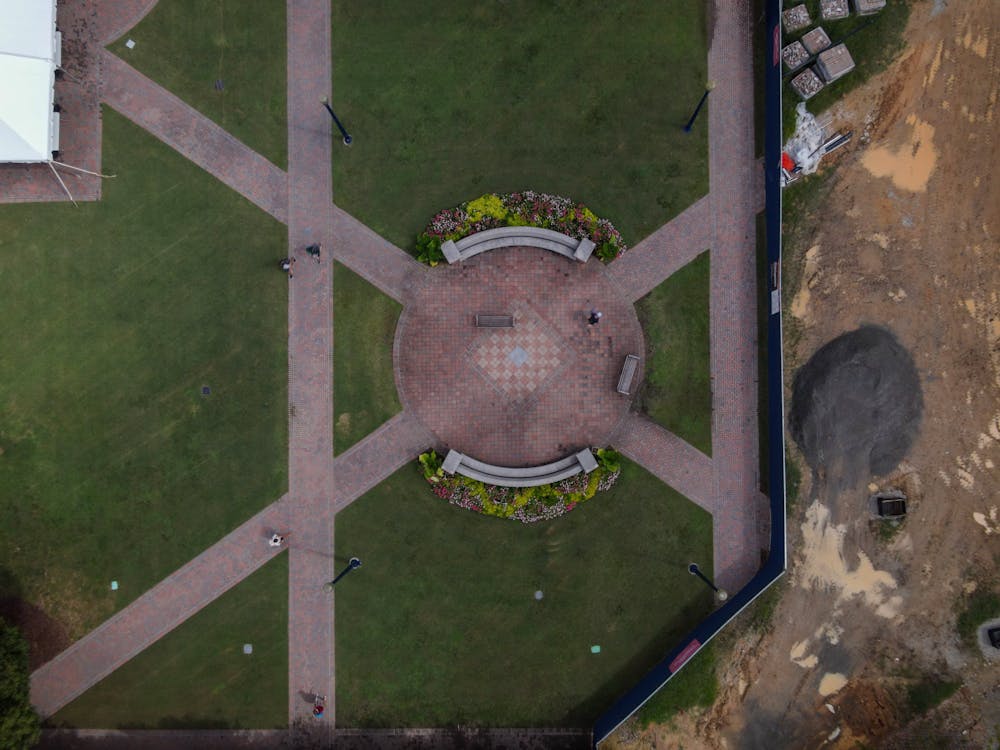The final report on the University of Richmond Equity Summit, held via Zoom on Sept. 29 and Oct. 1, reflects the first event and continues the discussion on campus surrounding social justice issues.
The report, edited by junior Tommy Na and Monti Narayan Datta, professor of political science, was published in March 2021 and reflects the intended goals and planning processes prior to the first event, held in fall 2020.
Na and senior Hijab Fatima organized the summit, which included six sessions on xenophobia, LGBTQIA+, violence prevention and Title IX, antisemitism, white privilege and Africana studies, according to the final report. A student-led planning team helped develop these themes, according to the report.
Blake Stack, assistant director of student engagement and operations in the Center for Civic Engagement, wrote in an email to The Collegian that he supported Na and Fatima's vision for university-wide dialogue.
“At Richmond, we tend to have a lot of siloed conversations centered on diversity, equity and inclusion,” Stack wrote. “Depending upon the audience, sometimes silos are healthy; however, we also need strategies to tear them down. One of the big goals of the Summit centered on breaking apart the silos by bringing people together, regardless of their positionality, to talk about difficult issues affecting our campus community.
“In a similar spirit to other important dialogue-based initiatives, the Equity Summit was intended to be a starting point, fostering the conditions for needed change. To re-shape our university’s policies and structures, it’s important that we continue to amplify student voice in public spaces.”
The final report took several months to make and provides ample information for students, staff and faculty to implement needed change, Stack wrote. The leaders of the Equity Summit acknowledged in the report that not all issues were presented within the two-day event, which Datta echoed.
“It became very clear that there were some very obvious topics that we wanted to address that we couldn't, like disability issues, ableism and disability rights,” Datta said. “We just didn't have the time or the bandwidth to cover everything. But I think we felt good with those six sessions, knowing they would begin to scratch and wade the water beneath the surface.”
The event was created with the intention of advancing the goals of UR’s Making Excellence Inclusive report, which was published on June 30, 2019 by UR president Ronald Crutcher. The MEI report served as a touchstone for this idea of equity, Datta said.
“Not necessarily is [the MEI report] the be-all-end-all word and equity, but is the foundational document upon which we'll be getting engaged and critically interrogate what equity at the University of Richmond might look like, especially with regard to diversity, equity and inclusion,” Datta said. “But I think our hope with the equity summit report is that it doesn't only link to the MEI report; it might link to future equity efforts.”
Lina Tori Jan, UR ‘20, originally came up with the idea for the Equity Summit following the racist and xenophobic incidents on campus last January, Datta said. The summit was initially supposed to occur in April but was postponed due to COVID-19, he said.
Na and Fatima began restarting the planning for the event over the summer with the help of Datta, Na wrote in an email to The Collegian. The group recruited students who would work alongside him and Fatima, Na wrote.
Enjoy what you're reading?
Signup for our newsletter
“We hope to make this an annual event with a format that can accommodate and allow as many people to join as possible,” Na wrote. “I think right now our focus is more on ensuring that we can create an action plan that benefits initiatives on campus. So if the opportunity presents itself to allow us to do that, we will try it out in the future.”
About 300 students, faculty, staff, alumni and administrators attended the event online, according to the report. The summit was one of the largest attended social justice events held on the UR campus, Datta said.
“My hope is that as a campus, whatever happens next, we can bring back a sense of honoring one another's inherent dignity,” Datta said. “And that's different than respecting one another. Because respect means earning somebody's sort of trust and aligning with your values. But with dignity, I think it's just knowing that there is another human being in the room.”
Contact news co-editor Ryan Hudgins at ryan.hudgins@richmond.edu
Support independent student media
You can make a tax-deductible donation by clicking the button below, which takes you to our secure PayPal account. The page is set up to receive contributions in whatever amount you designate. We look forward to using the money we raise to further our mission of providing honest and accurate information to students, faculty, staff, alumni and others in the general public.
Donate Now



